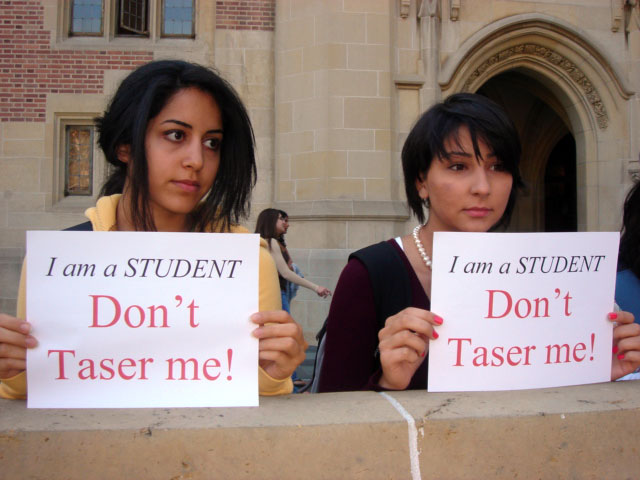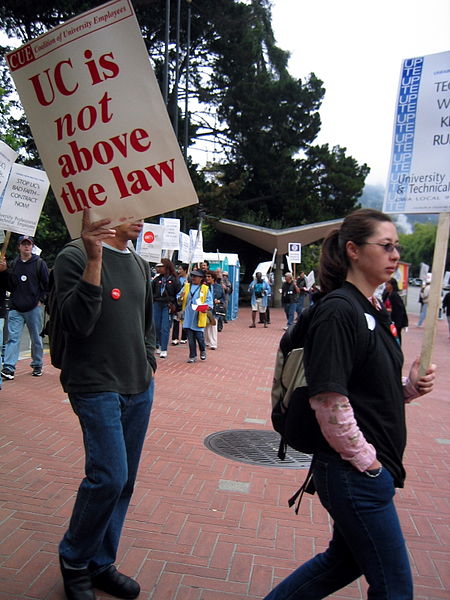Introspective U

Supporters of secondary education often fondly reminisce about the 1960s as the golden era of the university (free in-state tuition at UC!). But Nick Mitchell, assistant professor of feminist studies and critical race and ethnic studies, seeks to put this nostalgia into a broader perspective. Universities reluctantly made concessions to feminist and minority activists during this formative time, but less for the greater good and more as a public relations strategy to promote American Cold War ideals and to maintain control over student activism, Mitchell said.

Mitchell explores how such motivations impact the university within the U.S. capitalistic system in his forthcoming book from Duke University Press, Disciplinary Matters: Black Studies, Women’s Studies, and the Neoliberal University. Universities can provide space to think outside of the market-driven box, Mitchell said, but they can also be exploitative, leaning hard on low-paid adjunct labor to teach students, for example. In the wake of the 2008 financial crisis that resulted in increasing budgetary constraints for universities, Mitchell and other activist scholars in the fledgling field of Critical University Studies aim to challenge nostalgia about the past, highlight inconsistencies between the university’s public mission and actual practices, and propose policy changes to address them.
“It’s incredibly difficult to be honest about universities from within, because so many times, our ideal of what a university is conflicts with what is happening on the ground,” Mitchell said. “I felt the need to try to rebalance the scales and tell a different story.”
—By Stephanie Pappas

